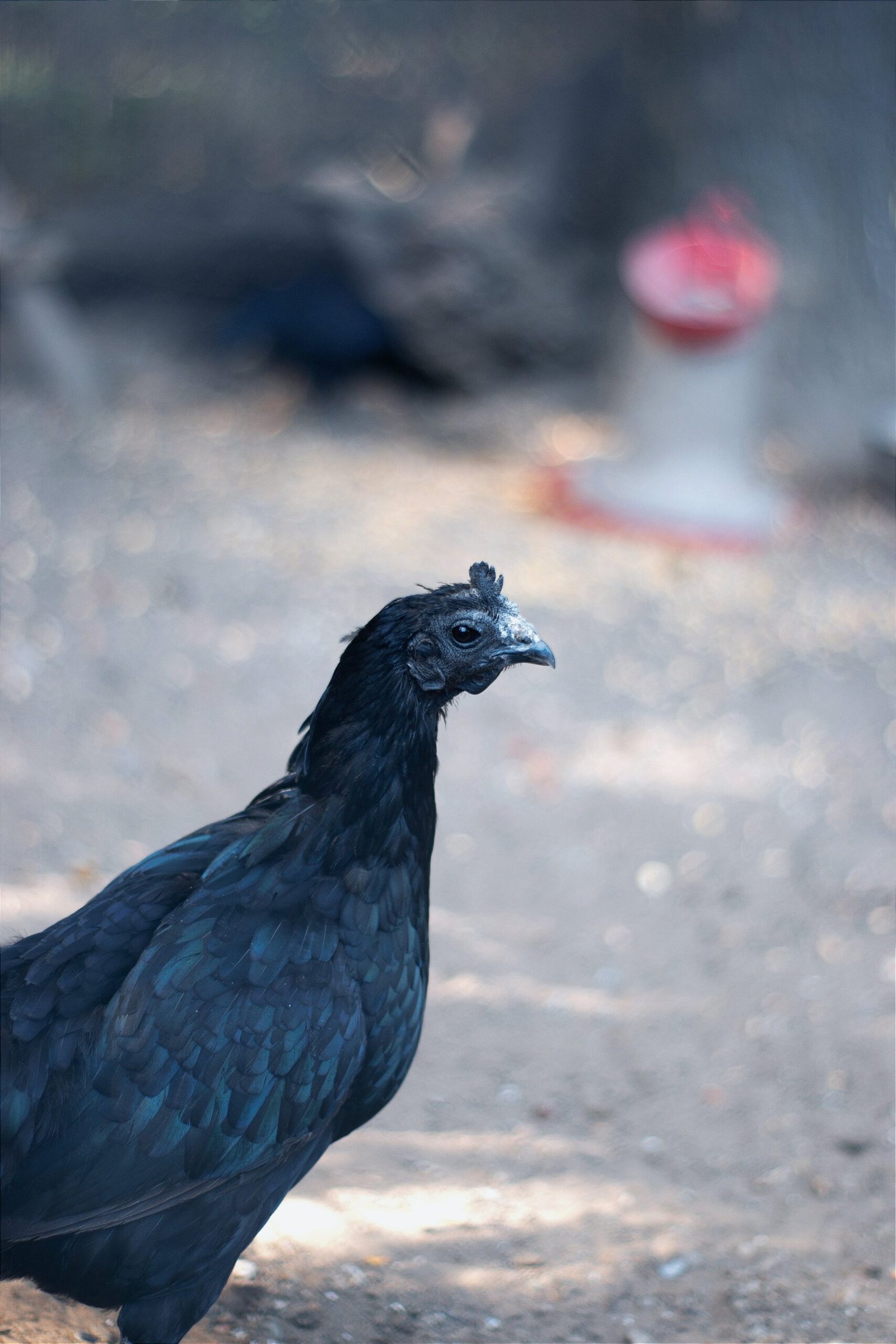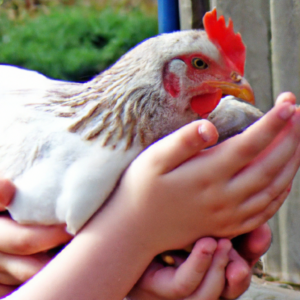
Have you ever wondered about the signs of an egg-bound chicken and how you can provide assistance? In this informative article, we will explore the tell-tale signs that indicate a chicken is suffering from egg-binding, a condition where an egg gets stuck in the hen’s reproductive system. By understanding the symptoms and learning the necessary steps to help her, you can provide effective support and ensure the well-being of your feathered friend.

Understanding Egg-Bound Chickens
Introduction to Egg-Bound Chickens
Egg-binding is a condition that occurs when a chicken is unable to lay an egg. This can be a distressing and potentially life-threatening situation for your feathered friend. As a responsible chicken owner, it is important to understand the causes, signs, and treatment options for egg-bound chickens. By being able to recognize the symptoms and provide appropriate care, you can help your chicken overcome this challenging condition and ensure her overall well-being.
Causes of Egg-Binding
Physical Factors
There are several physical factors that can contribute to egg-binding in chickens. One common cause is the size of the egg. If a chicken lays an egg that is too large for her reproductive tract to pass, it can become trapped, leading to egg-binding. Other physical factors that can increase the risk of egg-binding include deformities in the reproductive tract or the presence of abnormal eggshell formations.
Environmental Factors
Environmental factors can also play a role in egg-binding. High-stress levels, such as disturbances in the chicken’s surroundings or the presence of predators, can hinder the egg-laying process. Additionally, a lack of privacy or inadequate nesting materials may cause the chicken to hold back from laying her egg, increasing the risk of egg-binding.

Signs and Symptoms
Visible Distress
One of the most obvious signs of an egg-bound chicken is visible distress. You may notice your hen pacing, vocalizing in distress, or appearing restless. She may also exhibit signs of discomfort and attempt to repeatedly squat or strain as if trying to pass the egg. It is important to pay attention to any changes in your chicken’s behavior or vocalizations to identify this distress.
Abnormal Posture and Behavior
Egg-bound chickens often display abnormal posture and behavior. They may adopt a hunched or penguin-like stance, indicating discomfort. Another common behavior is excessive preening or pecking at the vent area. Your chicken may also appear lethargic, refuse to eat, or have difficulty walking. These changes in posture and behavior are key indicators that your chicken may be dealing with egg-binding.
Diagnosing Egg-Binding
External Examination
To diagnose egg-binding in your chicken, a thorough external examination is essential. Gently observe the abdomen, vent, and surrounding areas for any abnormalities or signs of swelling. The vent area may be enlarged or appear reddened. An external examination will provide valuable clues about the presence of an egg and the severity of the condition.
Palpation and Radiography
In more severe cases or when the diagnosis is uncertain, your veterinarian may perform a palpation or radiography. Palpation involves carefully feeling the abdomen to locate the egg. Radiography, or X-ray imaging, can provide a clearer picture of the egg’s location and any potential complications. These diagnostic methods will help determine the best course of treatment for your egg-bound chicken.

Treating Egg-Bound Chickens
Providing a Private and Quiet Space
Creating a private and quiet space for your egg-bound chicken is crucial for her comfort and recovery. Seclude her from the other chickens in a warm, quiet, and dimly lit area. This will reduce stress levels and allow her to focus on the task of laying the egg. Ensure she has access to fresh water and a comfortable nesting area to encourage relaxation.
Increasing Calcium Intake
Increasing calcium intake can help facilitate the egg-laying process and prevent future instances of egg-binding. Adding a calcium supplement, such as crushed eggshells or oyster shell, to your chicken’s diet will provide the necessary nutrients to strengthen her reproductive system. Additionally, consider offering calcium-rich treats like leafy greens or calcium-fortified feed to boost her calcium levels.
Natural Remedies
Warm Baths
A warm bath can greatly alleviate the discomfort associated with egg-binding. Gently place your chicken in a shallow basin of warm water, making sure to support her fully. The warm water will help relax her muscles and may facilitate the egg’s passage. Be vigilant throughout the process and ensure that your chicken does not become exhausted or chilled.
Lubrication and Massage
Another natural remedy for egg-bound chickens is lubrication and gentle massage. Using a lubricant, such as mineral oil or petroleum jelly, apply a small amount to the vent area. This can help lubricate the egg and make it easier to pass. Additionally, gently massaging the abdomen in a circular motion can stimulate the reproductive muscles, aiding in the egg’s movement.
Assisted Treatments
Internal Manipulation
In more severe cases of egg-binding, assisted treatments may be necessary. Internal manipulation, performed by a veterinarian, involves manually manipulating the egg to help it move through the reproductive tract. This procedure should only be done by a professional to minimize the risk of injury to the chicken.
Oxytocin Injections
Oxytocin injections may also be administered by a veterinarian to stimulate contractions of the reproductive muscles and assist in the egg’s passage. This hormone helps to facilitate egg-laying and should be administered under professional supervision.
When to Seek Veterinary Help
Persistent Egg-Binding
If your chicken remains egg-bound for an extended period or exhibits worsening symptoms, it is crucial to seek veterinary help. Persistent egg-binding may indicate underlying health issues or complications that require immediate attention. Your veterinarian will be able to provide the necessary medical intervention to prevent further complications.
Repeated Episodes
If your chicken experiences repeated episodes of egg-binding, it is important to consult with a veterinarian to identify the underlying cause. Repeated episodes may suggest an ongoing health concern or a need for dietary adjustments. Working with a professional will ensure that your chicken receives appropriate treatment and preventive measures.
Preventing Egg-Binding
Diet and Nutritional Considerations
Maintaining a balanced diet for your chickens is essential in preventing egg-binding. Provide a well-balanced feed that is rich in calcium, protein, and vitamins. This will promote overall reproductive health and support the development of strong eggshells. Regularly offering calcium supplements and dietary enhancements, such as crushed eggshells or oyster shell grit, can help prevent calcium deficiencies.
Managing Stress and Environment
Reducing stress levels in your flock can significantly reduce the risk of egg-binding. Ensure that your chickens have a calm and predator-free environment where they feel secure. Provide sufficient nesting boxes and bedding material, ensuring a clean and comfortable environment for egg-laying. Minimize disturbances and abrupt changes in their surroundings to maintain a stress-free atmosphere.
Conclusion
Taking prompt action to help egg-bound chickens is essential for their well-being. By understanding the causes, signs, and treatment options for this condition, you can provide timely and appropriate care for your feathered friend. Whether through natural remedies, assisted treatments, or preventive measures, it is crucial to prioritize the health and comfort of your chicken. Remember, seeking veterinary help when needed and maintaining a suitable environment will ensure your chickens lead a happy, healthy life free from the challenges of egg-binding.







